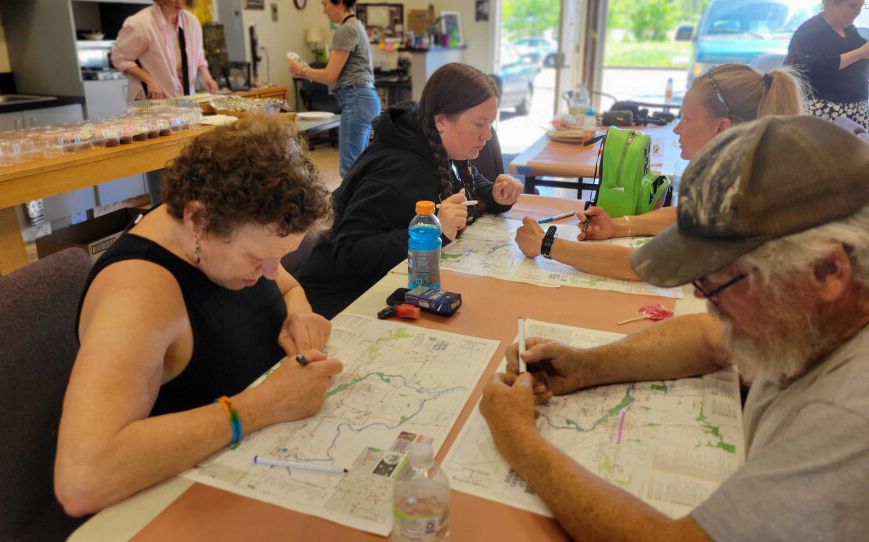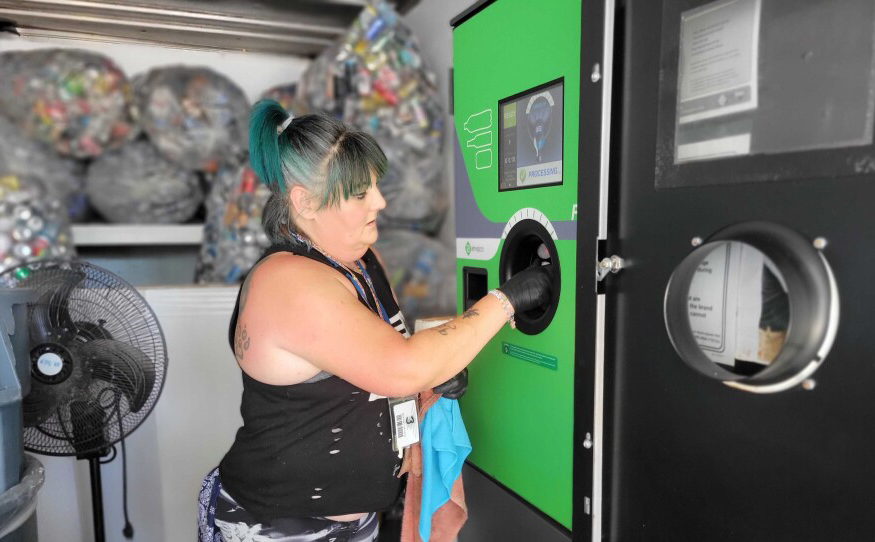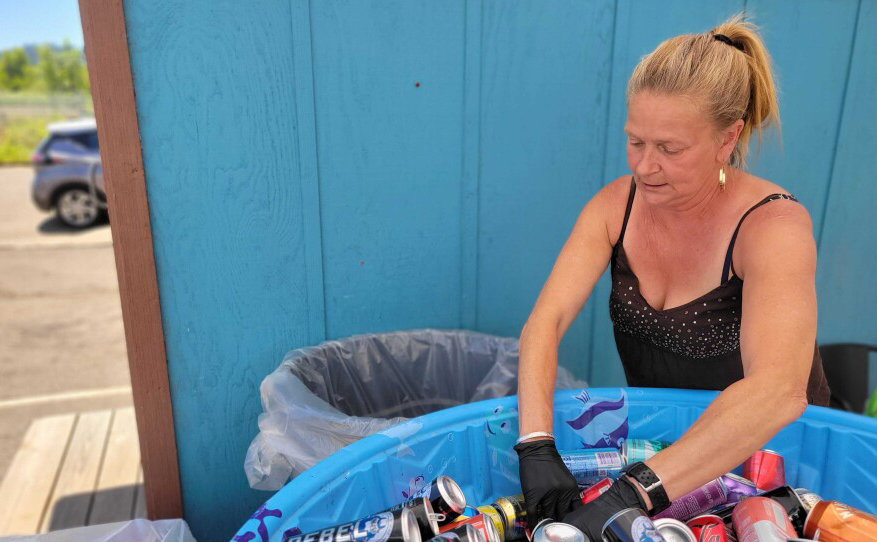Collaborating Across the Board Leads to Meaningful Change
By Anni Katz | 7/8/2024
BY ANNI KATZ
Public Information Officer
Lane Transit District
Eugene, OR
Throughout the United States, public agencies and nonprofit organizations continue to grapple with the diverse needs of their communities. When transit agencies work alongside those in healthcare, education, and the business community, communities are more well-equipped to make meaningful changes.

Lane Transit District’s (LTD) bus drivers faced a daunting challenge. Like many transportation providers, safety is the top priority for this agency. Passengers were boarding with bags stuffed full of recyclables, bulky wagons, and trash cans filled with their belongings. The carry-ons had become a safety and sanitation hazard.
Eugene, OR, has one the highest per-capita rates of homelessness in the U.S. Lane County has an unhoused population that has increased 72 percent since 2018, according to the latest Point-in-Time (PIT) count conducted in July 2023.
LTD knew its carry-on policy needed an update. But, with members of the unhoused community relying on the agency for access to safe sleep sites, food, medical care, and other social services, LTD didn’t want to prevent people from riding.
“Our community has complex needs that require a range of viable and intentional solutions,” said Jameson T. Auten, LTD’s chief executive officer. “Collaboratively focusing on understanding community needs and priorities to better inform transit-related decisions creates a more robust and healthier community.”
Enter LTD’s first community resource liaison, Sarah Koski. She was brought on as part of a unique initiative from Auten. A former case manager at a safe sleep site, Koski has deep ties to both the area’s social service providers and its unhoused community.

“Two large bags pay for a single day on the street. It’s $10 of income,” said Koski. “If you can only carry one bag at a time, where does the other bag go? ‘Gleaning’ is a livelihood for many of our unhoused passengers.”
Instead of simply announcing the new policy, LTD engaged the community. Koski visited the area’s low barrier shelters and nonprofits, always bringing someone from the agency’s operations department with her. A leader of Lane County’s Lived Experience Advisory Group for Unhoused Engagement expressed concern about the change. “We met with him within 24 hours of his comment,” said Koski. “He told us in all his years living on the street and later as an advocate for the homeless, he’d never had a reputable organization willing to listen to his perspective like this.”
LTD’s new carry-on policy established rules that include only allowing certain types of carts and items that can rest safely on a rider’s lap. Any item brought onboard must be clean.
By the time the revised policy was implemented, the people most affected by it were prepared. But they still wanted to continue their gleaning and they had an idea: if the recyclables can’t come on the bus, can a bus come to them?
Everyone Village, a transitional housing project in Eugene, has a peer-led recycling redemption site. Everyone Village reached out to Oregon Beverage Recycling Cooperative (OBRC), the non-profit operator of Oregon’s Bottle Bill. OBRC committed an initial grant of $25,000 to help create the state’s first mobile bottle drop where the recyclables could be rinsed, and the gleaners paid. A month later, a local church had donated a school bus, and LTD was working with Everyone Village residents in a cross-community crowdsource mapping project.

Auten believes transportation is just one of the many connected industries that can have a major positive impact on the health of a community. To that end, access to housing and other wraparound services are now available at LTD’s central station. LTD has partnered with Reveille Foundation, an organization that supports underserved populations.
At their LTD-based navigation center, unhoused individuals can receive a “Front Door Assessment,” a requirement to access Lane County’s public housing. Reveille offers veteran navigations, as well, which connects them to specific programs like registering with Veterans Affairs, job training, mental health services, and more. Statistically, around 30 percent of the unhoused population are veterans.
“Working with the Reveille Foundation and our community resource liaison are just some of the ways LTD can be a proactive partner in community solutions,” said Auten. “LTD’s role is to work alongside other government agencies, businesses, and non-profit organizations to figure out how to best connect our community.”